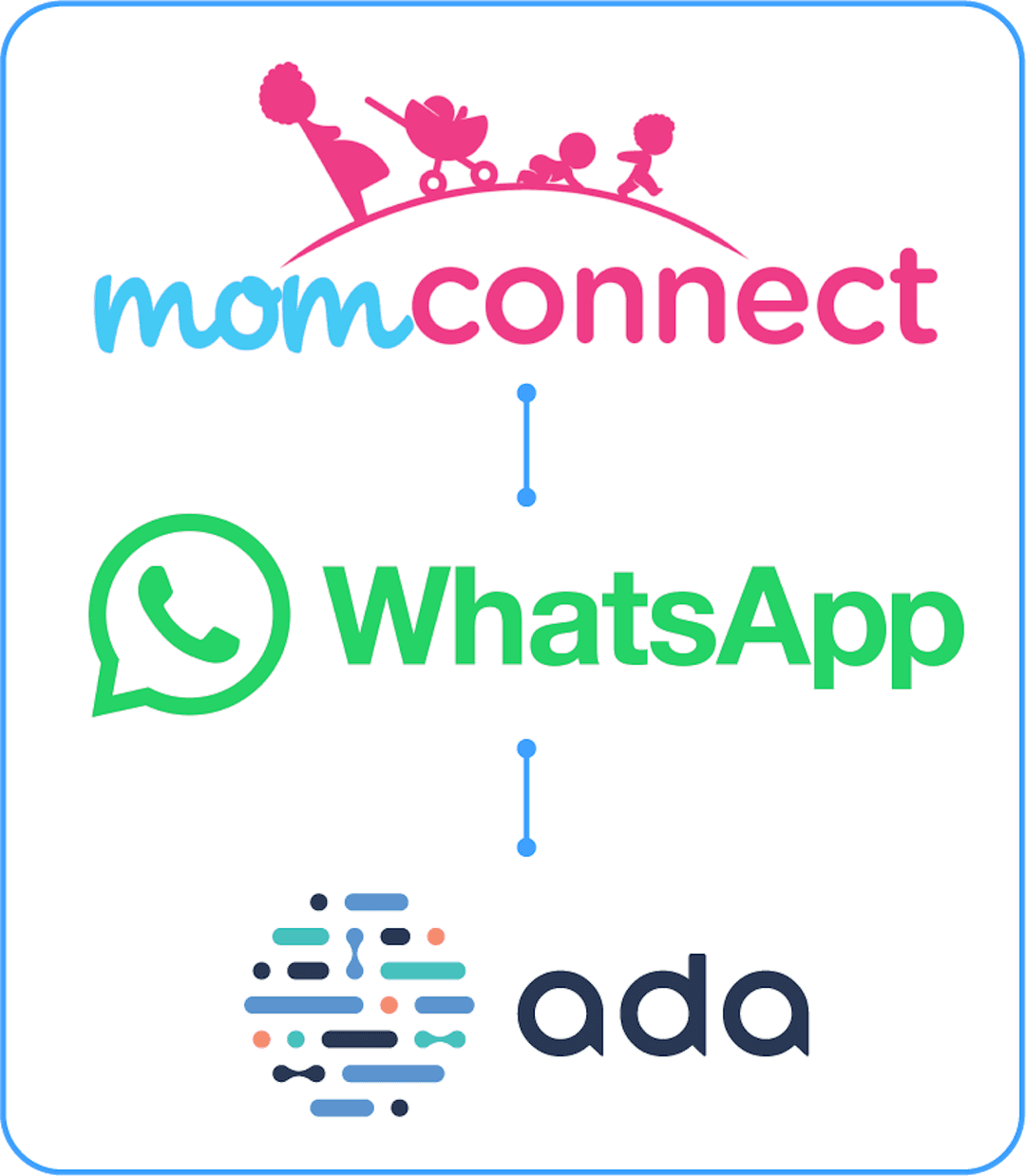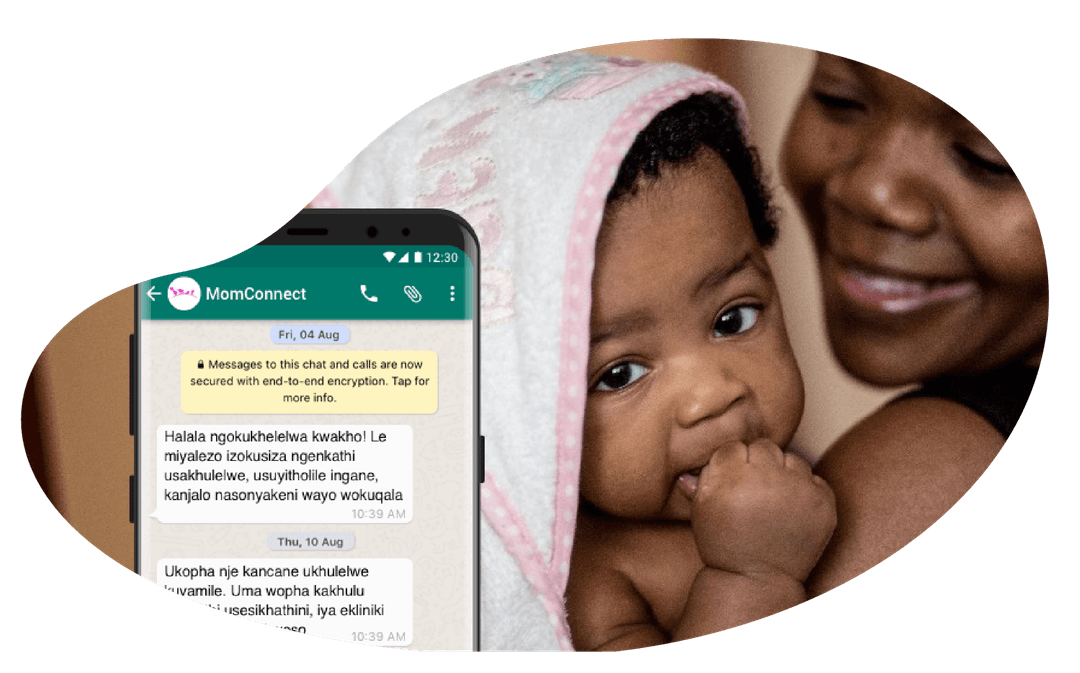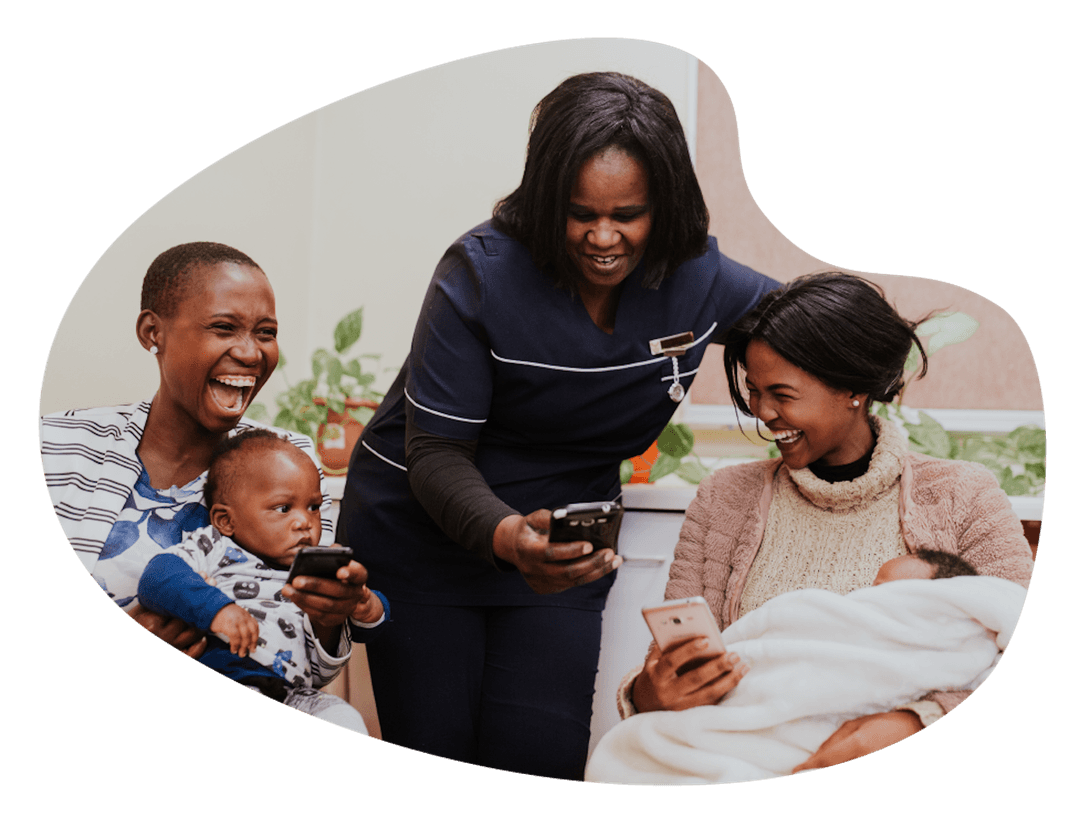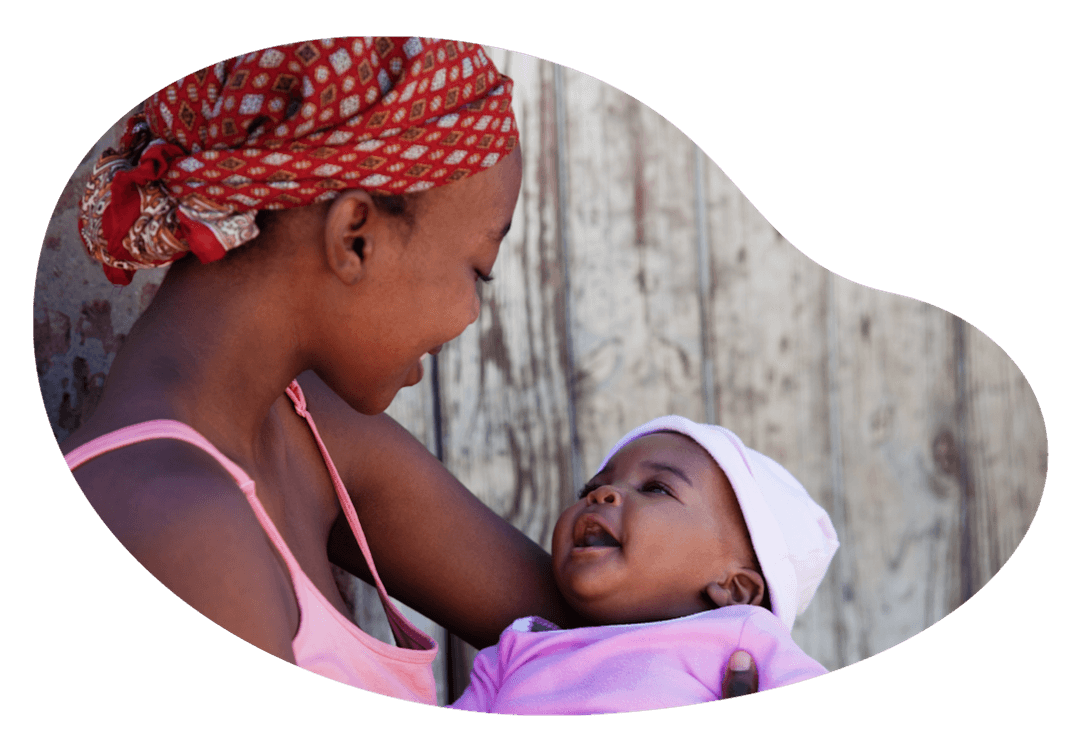Enhancing maternal health outcomes.
Investigating the impact of Ada's symptom assessment and care navigation technology on maternal health outcomes across South Africa.
The World Health Organisation (WHO) aims to end preventable deaths of newborns and children under 5 years of age and reduce maternal mortality.1 Despite progress in reducing maternal and child mortality in South Africa over the last decade, the current rates remain unacceptably high.2 3
Reliable medical information that is easy to access and use can help pregnant women and mothers understand when and where to seek medical care for themselves and their babies. If done right, digital health technology integrated with artificial intelligence represents an opportunity to address these issues.

To help address these challenges, Ada Health partnered with South African-based non-profit organization Reach Digital Health (formerly Praekelt.org), a key implementation partner for the South African National Department of Health’s (NDOH) flagship maternal health program in South Africa - ‘MomConnect.’4
Integrating Ada into MomConnect
MomConnect uses mobile technology to support and improve the health of pregnant women, newborns, and infants' health nationally. Through MomConnect, every pregnant woman in South Africa can receive free, informative, stage-based messaging during pregnancy for the first two years of her baby’s life via WhatsApp, as well as access to a helpdesk that offers live 24/7 support.
Since its launch in 2014, over 4.7 million mothers in 95% of public health facilities have registered with MomConnect. Today, the platform services approximately 450,000 monthly users.

Together with Reach, with support from The Rockefeller Foundation, and the South African NDOH, Ada’s AI-powered symptom assessment and care navigation technology has been integrated and made available to MomConnect users across the country through WhatsApp on their mobile.
As part of the project, a research collaboration set out to investigate the impact of the integration, known as the MomConnect Symptom Checker, and the appropriateness of urgency advice and suggested next steps. It also sought to identify what the resulting changes to user’s health-seeking behavior would be, as well as the effect on their health outcomes.

The SAFEMOM study
Over 4 weeks, nearly 1,000 eligible MomConnect users over 18 were enrolled and consented. They then completed surveys about their experience with the symptom assessment and their intention to seek care. Users were contacted one week later to learn about their health-seeking behavior. An independent panel of expert physicians reviewed a number of cases to objectively evaluate the quality of advice provided.
Nearly 1,000 MomConnect users took part in the SAFEMOM study.
Most participants were aged between 18-30, with 11% still in school and half were on a household income of less than $90 per month. 85% of respondents were in regions of South Africa where maternal mortality rates exceed the UN’s Sustainable Development Goal of 70 per 100,000 live births.
Most respondents were seeking guidance for their symptoms while pregnant with their first child (65%), who, on average, were in week 28 of their pregnancy. A smaller proportion of assessments were for symptoms of their children, generally below the age of 12 months.

Study findings
Overall, the findings demonstrated an overwhelmingly positive impact on maternal healthcare and safer health-seeking decisions for mothers and healthcare professionals. Highlighted findings include:
98% of womenfound Ada useful
1 in 3 alteredtheir initial health-seeking plans
90% reductionin women not knowing what to do
The most common areas of need are respiratory disorders, infectious diseases, and urinary and reproductive illnesses, all of which, if left unaddressed, can pose a substantial risk to both the mother and her child. This research indicates a tangible improvement in the confidence of mothers’ health-seeking behavior and the actual decisions they make.
The study found that more than half of moms who received new treatment, including medication, surgery, and hospital admission, would not have accessed these interventions if they hadn’t checked their symptoms. A significant number of these issues were considered serious, or even potentially life-threatening by their medical provider, and half of those patients were not planning to seek care before using the symptom checker.
Indeed, the number of moms deciding to seek care through primary care, urgent primary care, or emergency care increased by 140%, from 18.1% to 43.5% when comparing intent with behavior. Additionally, the number of moms who opted for self-care at home decreased by 14%, from 63.4% to 54.7%. The study found:
Over half of those who received new treatment, including medication and surgery, or were admitted to hospital, would not have accessed these interventions had they not used Ada's via MomConnect to understand their symptoms.
Usability and safety:
- 98% of mothers found it useful for assessing their symptoms.
- 96% of mothers found it easy to assess their symptoms.
- 98% of Ada's urgency advice was deemed safe by clinicians.
Behavior change:
- 1 in 3 women altered their initial health-seeking plans after using the service.
- 41.5% decrease in health-seeking behavior considered unsafe by medical experts.
- 90% reduction in women not knowing what to do.
Cost savings:
- Redirecting pregnant women to appropriate care options would also result in short-term cost and time savings. While not the focus of this study, simple economic analysis suggests that the South African healthcare system could have saved ~$65 USD for each person redirected to lower cost or less time-intensive care.
Implications
This study is about more than just the usability of a digital health tool; it highlighted the many steps along the path to maternal and infant mortality. Too many mothers present too late, with conditions too advanced for treatment; too many mothers are declining to seek care altogether or don’t recognize the urgency of the symptoms with which they present. Where a mother or child has a potentially infectious disease, failure to seek adequate treatment represents a broader threat to the entire community through unwitting contagion to others. This all contributes in unattributable ways to the high costs and poor outcomes seen in the region.
Maintaining a delicate balance between directing individuals to seek professional medical care and empowering them to safely manage their symptoms at home is essential in promoting overall health and well-being. While immediate medical attention is indispensable for certain conditions, providing guidance for addressing minor ailments and concerns is equally crucial.
About 11% of moms who were intending to seek care prior to checking their symptoms, subsequently chose self-care after completing an assessment, ensuring that critical health resources remain available for those with greater need. Striking this balance ensures that critical medical resources are efficiently allocated while fostering a sense of self-care and responsibility among individuals.

By recognizing the appropriateness of each scenario, it is possible to foster a responsive and supportive healthcare environment, ultimately contributing to the betterment of individual and community health outcomes. Learn more about our Global Health Initiative here.

Acknowledgements
We are so grateful to all the MomConnect users who took part, to all the clinical experts involved across the project, Citizen Surveys, and to the project partners, Reach Digital Health, Ada Health, The Rockefeller Foundation, and the South African National Department of Health.
UN General Assembly (2015). Transforming Our World: The 2030 Agenda for Sustainable Development.
Mabaso MHL, Ndaba T, Mkhize-Kwitshana ZL. (2014). Overview of Maternal, Neonatal and Child Deaths in South Africa: Challenges, Opportunities, Progress and Future Prospects. Int J MCH AIDS. 2014;2(2):182-189
Barron P, Padarath A. (2017). Twenty years of the South African Health Review. South African Health Review. 2017(1):1-10
South Africa National Department of Health (2023). What is MomConnect? https://www.health.gov.za/momconnect/